Articles
- Page Path
- HOME > J Korean Acad Nurs > Volume 40(4); 2010 > Article
-
Original Article
- Development and Evaluation of a Transitional Care Program for Patients Discharged from Military Hospitals
- Seun Young Joe
-
Journal of Korean Academy of Nursing 2010;40(4):599-609.
DOI: https://doi.org/10.4040/jkan.2010.40.4.599
Published online: August 31, 2010
Assistant Professor, Department of Nursing, Armed Forces Nursing Academy, Daejeon, Korea.
- Address reprint requests to: Joe, Seun-Young. Department of Nursing, Armed Forces Nursing Academy, BOX 78-502, Chumok-dong, Yuseung-gu, Daejon 305-153, Korea. Tel: 82-42-878-4551, Fax: 82-42-862-1501, afna4551@mnd.go.kr
• Received: September 29, 2009 • Accepted: August 20, 2010
Copyright © 2010 Korean Society of Nursing Science
Figure & Data
REFERENCES
Citations
Citations to this article as recorded by 

- Discharge teaching, readiness for hospital discharge and post‐discharge outcomes in cataract patients: A structural equation model analysis
Aihua Zhang, Xianqiong Feng, Chujin Qiu, Lopez Violeta
Journal of Nursing Management.2021; 29(3): 543. CrossRef
- Figure
- We recommend
- Related articles
-
- Development and evaluation of a question-answering chatbot to provide information for patients with coronary artery disease after percutaneous coronary intervention
- Development and Evaluation of an App-Based Self-Management Program for Exercise Practice of Breast Cancer Survivors: A Non-Randomized Controlled Trial
Development and Evaluation of a Transitional Care Program for Patients Discharged from Military Hospitals
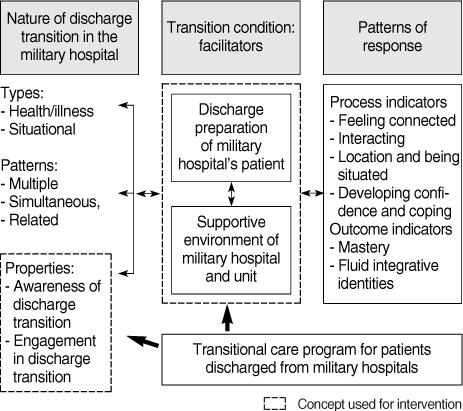
Figure 1
Conceptual framework based on Meleis's transition theory.
Figure 1
Development and Evaluation of a Transitional Care Program for Patients Discharged from Military Hospitals
Outline of the Transitional Care Program for Patients Being Discharged from Military Hospitals
Homogeneity Test for General Characteristics of Transitional Condition
*M±SD; †Fisher's exact test.
Homogeneity Test for Health-related Characteristics of Transitional Condition
*M±SD; †Fisher's exact test.
Difference in Discharge Readiness and Discharge Transition
Table 1
Outline of the Transitional Care Program for Patients Being Discharged from Military Hospitals
Table 2
Homogeneity Test for General Characteristics of Transitional Condition
*M±SD; †Fisher's exact test.
Table 3
Homogeneity Test for Health-related Characteristics of Transitional Condition
*M±SD; †Fisher's exact test.
Table 4
Difference in Discharge Readiness and Discharge Transition
 KSNS
KSNS
 E-SUBMISSION
E-SUBMISSION

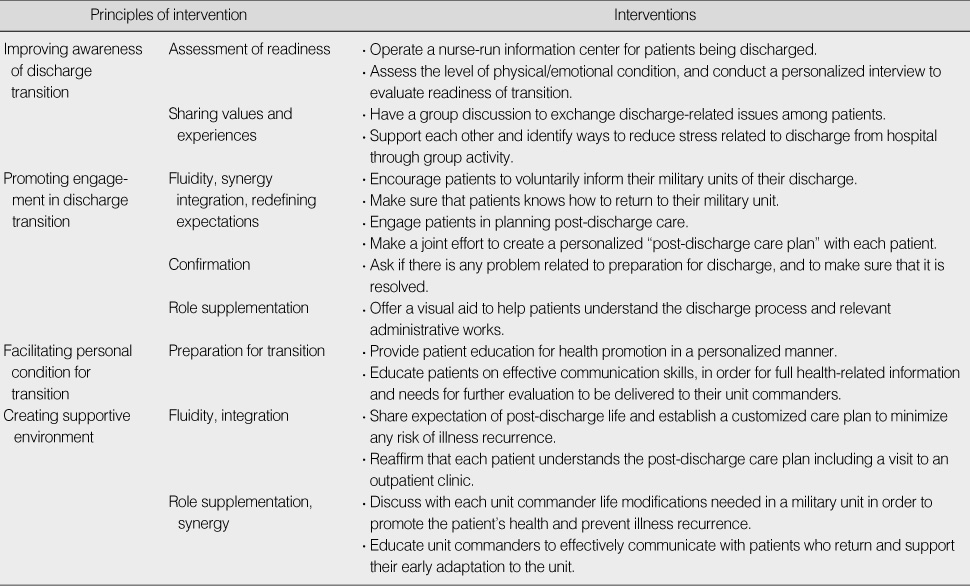
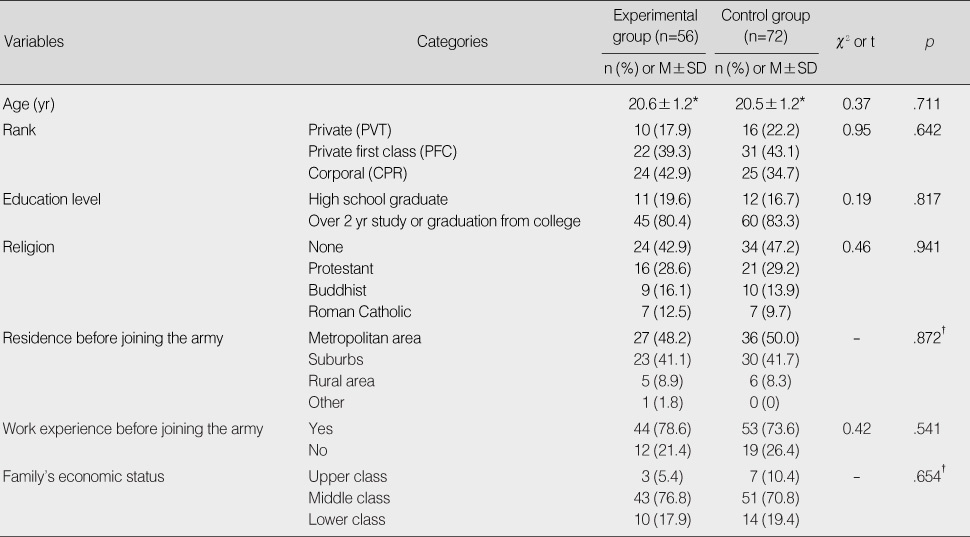
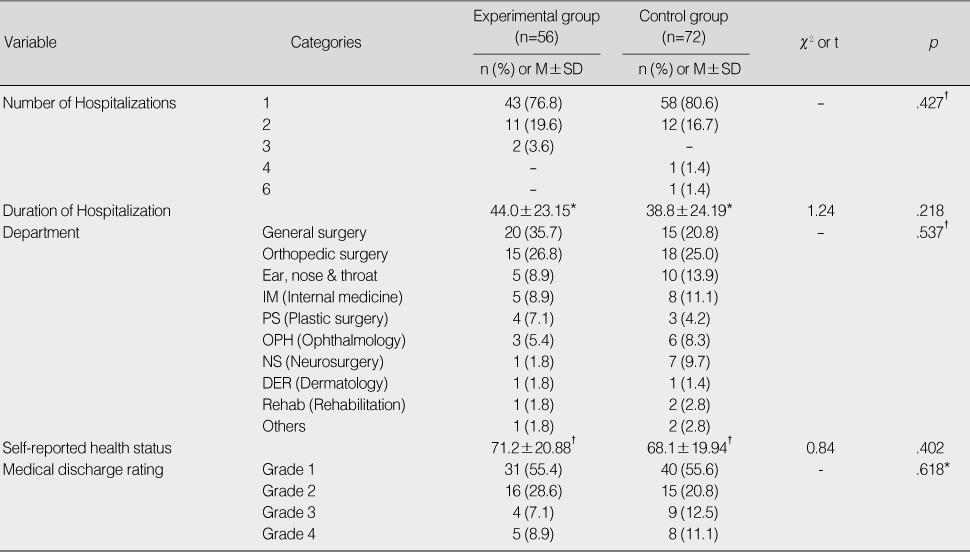
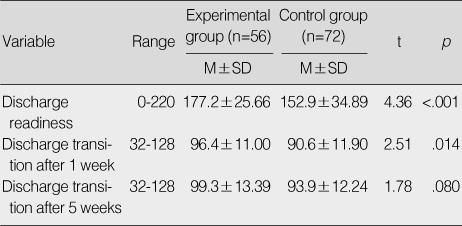
 Cite
Cite

